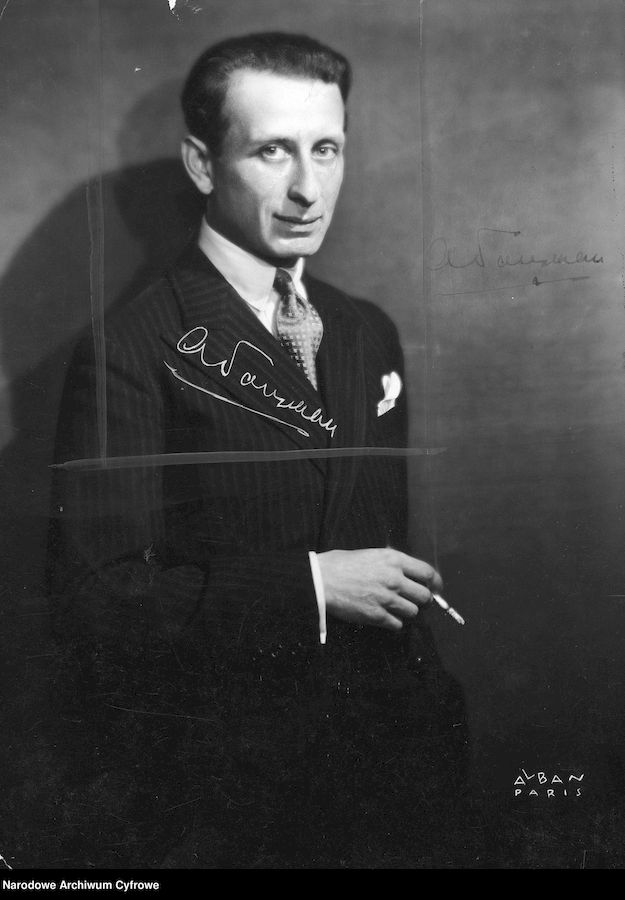Aleksander Tansman (1897 - 1986)

Few composers in the twentieth century have such an exceptionally far-ranging career as Alexandre Tansman. Born in Poland in 1897 at Łódź, also the birthplace of his friend, the pianist Arthur Rubinstein, Tansman studied at the conservatory there and in Warsaw. He had as a fellow student the famous conductor and composer Paul Kletzki, who, as a violinist, took part in the first performance of Tansman’s now lost Piano Trio No. 1 and later conducted also in Paris his Fifth Symphony [Marco Polo 8.223379]. After winning in 1919 the three first prizes in the national composition competition organized in the newly established Polish Republic, Tansman settled in Paris, where he had the support and encouragement of Ravel and Roussel.
He established friendly relations with composers of his own generation such as Milhaud and Honegger and was a member of the Ecole de Paris, a group of composers from central and eastern Europe that included Bohuslav Martinů, Marcel Mihalovici, Tibor Harsányi and Alexandre Tcherepnin. His compositions were conducted by the most famous conductors of the period, Serge Koussevitzky, Leopold Stokowski, Pierre Monteux, Vladimir Golschmann and Dimitri Mitropoulos.
In 1927–28 he made his first tour of the United States, performing, with Koussevitzky and the Boston Symphony, his Second Piano Concerto, a work dedicated to Charlie Chaplin, who was present in the concert hall. In 1932–33 Tansman embarked on a world tour during which he had the opportunity, in India, to meet Ghandi. In New York he had the surprise of hearing his Four Polish Dances programmed by Toscanini with the New York Philharmonic. Later it was thanks to a committee established by Toscanini, Chaplin, Ormandy and Heifetz that he and his family were able to leave France, occupied at the beginning of the Second World War. During his exile in America his career underwent considerable development and his works were played by the best American orchestras (New York, Cleveland, San Francisco, Minneapolis, Los Angeles, St Louis, Washington, and Cincinnati). He lived in Los Angeles and counted Stravinsky among his closest friends. From this almost daily contact later came a book on the Russian composer that is still regarded as authoritative.
When he returned to Paris, his European activity resumed. His works were directed by the most renowned conductors of the day, such as Rafael Kubelik, André Cluytens, Jascha Horenstein, Ferenc Fricsay, Charles Brück, Jean Fournet and Bruno Maderna. There were regular commissions from French radio and this final period brought an important number of compositions, among them the oratorio Isaië le Prophète, the opera Sabbataï Zevi and the Concerto for Orchestra.
(source: grandpianorecords.com)
